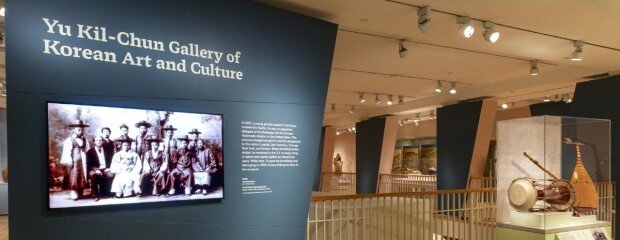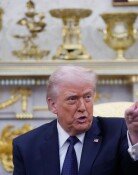Peabody Essex reopens expanded Korean gallery honoring Yu
Peabody Essex reopens expanded Korean gallery honoring Yu
Posted May. 20, 2025 07:33,
Updated May. 20, 2025 07:33

The Peabody Essex Museum in Massachusetts, the oldest continually operating museum in the United States, has reopened its Korean gallery, newly expanded and renamed in honor of late Joseon-era politician and reformer Yu Kil-chun (1856–1914), best known for his seminal work Observations on Travels in the West (Seoyugyeonmun).
The museum announced on May 19 that the “Yu Kil-Chun Gallery of Korean Art and Culture” opened to the public on May 17 after years of renovation. Founded in 1799, the Peabody Essex Museum (PEM) was the first in the U.S. to systematically collect Korean art, now boasting more than 1,800 related objects.
Originally opened in 2003, the gallery closed in 2019 for a major overhaul. After nearly six years, it has reopened with 232 square meters of exhibition space, incorporating part of the former Asian gallery that previously housed Japanese artifacts. The reimagined gallery features over 100 carefully selected items, including artifacts from Korea’s late 19th-century reform era.
At the center of the new exhibition are pieces tied to Yu Kil-chun, a leading figure in Korea’s 1883 diplomatic mission to the United States and widely regarded as the country’s first overseas student. “Yu advised the museum’s director on Korean artifacts during his visit,” said curator Kim Ji-yeon. On display are items Yu donated to PEM, including traditional garments, personal effects, and letters he exchanged with the museum.
Also featured for the first time is a rare family portrait of Yi Beom-jin (1852–1911), Korea’s minister to the United States from 1896 to 1900. The photo includes his wife, eldest son Yi Gi-jong, and second son Yi Wi-jong, who later served as a delegate to the 1907 Hague Peace Conference. Artifacts linked to Yi’s U.S. counterpart Edwin V. Morgan (1865–1934) have also been donated by Morgan’s descendants.
The gallery highlights modern Korean decorative arts from the late 19th century that blend Eastern materials and Western forms. Among them is a gentleman’s hat made of Korean horsehair, gifted to "Choson: The Land of the Morning Calm" author Percival Lowell (1855–1916). Other exhibits include a hexagonal silver box engraved with the name “Mrs. Polling” in Hangul and a chair displayed at the 1893 World’s Columbian Exposition in Chicago.
이지윤 기자 leemail@donga.com







